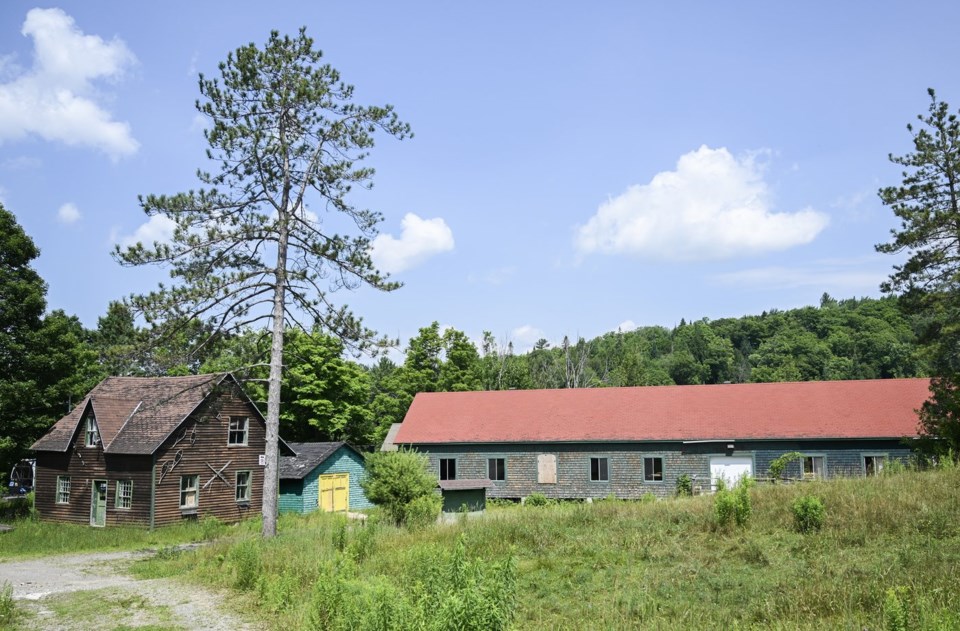MILLE-ISLES, QUEBEC — Residents of a town north of Montreal expressed cautious relief and optimism on Saturday as they learned that a more than century-old Scouts camp site will become a conservation and tourism site.
Scouts Canada announced earlier this week that it is selling Tamaracouta Scout Reserve to entrepreneur Eric Desroches, in partnership with the Nature Conservancy of Canada and the town of Mille-Isles, Que.
A project manager for the Nature Conservancy of Canada told a town meeting Saturday that the organization will spend about $3.5 million to acquire some 82 per cent of the land.
Catherine Lefebvre said the organization is acquiring more than 200 hectares, but will cede around 90 of them to Mille-Isles, about 70 kilometres northwest of Montreal.
The rest of the site will become a yet-undefined tourism project developed by Desroches.
Mille-Isles Mayor Howard Sauvé said following the meeting that determining the site's future had been an "eight-year ordeal, since the Scouts basically abandoned the site in 2018." All along, he said the main fear had been that developers would come in and "parcel off" the pristine wilderness.
Sauvé expressed confidence that the new project would be in line with the values of the community, and described the tourism project as "loosey-goosey," but still "well-defined."
He said the property has been a part of the town's heritage for more than 100 years.
"That’s never going to go away, but it’s going to look a little different from now on," he said.
The camp opened in 1912 and operated for more than a century, hosting camps and jamborees for generations of young people. It was definitively closed in 2019 due to what Scouts Canada called years of successive financial hardship and looming costly repairs. The organization previously described the property as the oldest operating Scout camp in the world.
Desroches told the meeting that the portions of the land he will own will be developed into one or more ecotourism projects, but that he hasn't yet worked out the details. The entrepreneur, who has already renovated another former camp, said a small part of the land is zoned for single-family homes, and might be developed into housing.
Desroches told the meeting that he planned to seek funding to renovate and restore some of the existing Scout buildings on site which have heritage value, and is open to keeping the Tamaracouta name.
Lefebvre described the territory as an important eco-corridor which can help link up to other protected areas, providing larger swaths of land for animals such as wolves, moose and lynx.
She said part of the territory would kept undisturbed for "strict" conservation, while the sector managed by the city would include public access and walking trails. She said the organization was still fundraising to pay for the purchase, which corresponds to the land's assessed value.
Charlie MacLeod, a former employee at the Scout camp and the president of an environmental coalition, said he was "breathing a sigh of relief" at the details of the plan.
"Tamaracouta is a keystone property in the middle of a very key wildlife corridor, and that was our biggest concern," he said after the meeting.
He said he wasn't bothered by the plans for tourism development, noting that the areas in question had seen "a lot of human traffic" during the Scout era.
Not all citizens who asked questions at the meeting received an affirmative answer to their questions.
Karine Peloffy, the head of a citizens' group that has fought to preserve the site, asked Desroches if he had plans to ensure children would still be able to access the land.
"Morally, it belongs to children," she said, noting that the land had originally been sold to the Scouts for that purpose.
Desroches noted that children would be able to access the public trails as well as the eventual tourism projects with their parents, but said he couldn't commit to keeping any portion of the land specifically as a children's camp.
This report by The Canadian Press was first published July 19, 2025.
Morgan Lowrie, The Canadian Press



